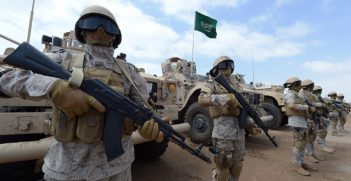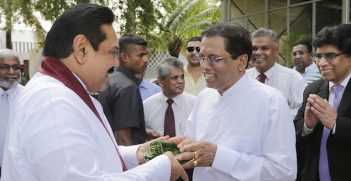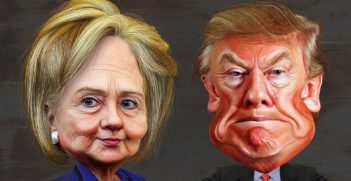Australia's Focus on the Pacific - Minister of International Development and the Pacific Hon Alex Hawke MP's Keynote Speech to the AIIA National Conference

Principles of freedom, open markets and defence cooperation underpin the Morrison Government’s approach to the Pacific.
I think we all know the world is changing I think we know that the strategic, economic, technological environment is rapidly evolving in today’s world. And I think we also know that populism, protectionism, liberalism have really jolted the international system in recent times and we’re still seeing consequences of that even today.[…]
You all know that Australia has a principled foreign policy and we know we’ve got a foreign policy grounded in Australian principles and Australian values. It’s representative of our Australian people’s approach, and the pragmatism that we bring to the implementation of those values and those principles, I think, reflects the spirit of Australia – pragmatic action based on our values and our principles. The overarching principle of Australian foreign policy is ensuring that our policies and actions are grounded in Australia’s national interests. And I think you might have seen that from the Prime Minister’s Lowy address that he gave recently, where he said that we must cultivate, marshal and bring our influence to bear, to protect and promote our national interests. And he also said that we must ensure our national interests remain paramount.
What are the principles that underpin our national interests? Well they’re important ones. And firstly, of course, it’s about protecting and promoting the values and who we are.
Australia values spreading thought, freedom of expression and worship, freedom of association and we use our Human Rights Council membership, our bilateral engagements to make clear our concerns when these values are threatened. Any human rights violations around the world, whether it’s in the Rakhine State or whether it’s in Xinjiang, Australia speaks out when values are challenged internationally. We value the sovereignty, the resilience, the independence of all states so that they can exist freely and without the threat of coercion, particularly in our backyard in the Pacific region. So we’re standing up of course as we always have, for the international order, for the rules and the norms that we’ve all grown up with, that we know are under threat and under challenge now, but the rights of states big and small and we have many, many small partners in the Pacific, whose sovereignty is under pressure.
We support many activities internationally still, but they’re very significant in today’s day and age. Flights and rights and freedom of navigation, action in the South China Sea and in the Straits of Hormuz just recently. But also we value freedom of exchange, freedom of endeavour, freedom of enterprise and of course, free trade.
We’re working hard to open up markets to support the free flow of goods, services, capital, realising that free trade and the free trade system is vital to the international order, vital to the flow of exchange in free countries. And of course, promotes the rule of international law … of the international system. And we’re working to inculcate this commitment by all states to share the burden of prolific challenges, again, binded by the rules and institutions. And we’re optimistic that this can still be maintained in the face of the challenges that I mentioned earlier.
The second principle that I want to reinforce, and it’s an absolutely important priority for the Morrison Government, is a stronger Australian economy. We talk a lot about what we do in foreign affairs but why? Why do we talk about a stronger economy? [It] is to ensure we secure prosperity for Australia, Australian partners, for our region, our family and the Pacific. And if we lose sight of the fact that the national security apparatus that foreign affairs operates to provide the basic, fundamental underpinning to a strong economy and prosperity for average Australians, then we’ve lost sight of the mission. […]
That’s why our Government has ramped up the trade agenda. We’ve concluded or negotiated trade deals with 17 out of our top 20 trading partners. 70 per cent of our two-way trade is now covered by trade agreements and is up from 26 per cent when this Government got elected. An impressive achievement. In the last six years alone we’ve secured duty free or preferential access to an extra 1.7 billion customers in the Australian market.
A domestic economic reform agenda has also equipped Australians with confidence, capability to trade, invest and grow our economy into the big economies of the world, into the small economies of the world, into the medium economies of our region. But we can’t have a strong economy without job security so we’re also taking the steps, the necessary steps to shore up the resilience of our institutions here in Australia to prevent foreign interference and equip our national security agencies with the resources they need to keep Australians safe. And if you think about the suite of legislation this Government has brought in, whether it’s establishing the kind of rules around foreign investment in critical national infrastructure; whether it’s about importantly banning foreign donations into the Australian political system.
The action that this Government has taken in this space has really shored up the ability of Australia to stand strong, continue to be the strong international player that we all want it to be. It cannot be understated that a strong, secure sovereign region fundamentally enables economic prosperity. We will never forget this and will continue to take action in the national security space.
The third principle I want to speak about today of course, as I of course have the assistant defence ministry as well, and given that, the defence cooperation in this region represents some of the long-standing agreements, arrangements, and things that we have in so many different countries in the Pacific. As the PM said when we announcement the step up, to step up we need to show up. This calendar year we’ve seen 54 visits by ministers and senior level Government officials in Australia for this calendar year. That’s showing up. As I said, I have in five months visited and had important relations many times.
Now, why are we working so hard? Why are we spending so much time in this area? Well as the prime minister said the Pacific is our family, the Pacific is our neighbourhood, the Pacific is our backyard, and indeed it’s the key to Australia’s economic prosperity, our future security, and of course our ability to be a good international player. We can’t have a strong and viable, prosperous Pacific and our credibility internationally would be under threat.
This is one enormous opportunity, and I want to speak a little bit about it. In a new era of strategic competition, a not unnatural result of the shift in dynamics and the power dynamics in our modern and multipolar organised world. I think you see the challenges that we face. We’ve grown up in a world and grown accustomed to a world where peace, security and prosperity has been underwritten by the United States.
And the US remains deeply engaged of course towards us, with our government, with Australia, with our region and a strategically important partner in the Indo-Pacific. But we know of course the fundamentals have changed. Like all great powers, a stronger China inevitably seeks to influence the region to suit its own interests and the US is also seeking to negotiate a very complex set of issues in its economic relationship with China, such as the treatment of foreign investment, the protection of intellectual property, and of course the balance of trade. And we’re all feeling the consequences of this.
Australia has been very vocal about our interest in this space, in the trade deal between China and the United States, and I think all of us can be proud of the role that Scott Morrison has played internationally in reinforcing Australia’s view that it is in no one’s interest to have this trade dynamic continue. We want to see a trade agreement between China and the United States concluded. The Prime Minister has also retained a healthy optimism that between the two partners we believe this can be achieved in spite of the obstacles and in spite of the difficulties that are presented. And Australia’s role between I think China and the United States in the trade space is very important.
You know of course that security risks continue in maritime security, focused on non-proliferation, and our step up now to counter terrorism and violent extremism, whether it’s in Mosul or Marawi. And I know you’re speaking about technological challenges at this conference today. Australia will continue to work closely with our partners on the development challenges that we face in our region, and I want to turn to the development side of my portfolio to speak now briefly.
We’re implementing an innovative, targeted and effective development systems program in the Pacific with a strong focus here on many countries in the region. I’m proud this year that we will make our largest ever assistance contribution in development terms of $1.4 billion to the Pacific region. I think it’s important to remember that will be Australia’s largest ever assistance contribution and in the Pacific. We’ve stepped up and we continue to step up.
It is also the Australian government that will spend the most ever – $500 million – on climate change in the Pacific region specifically. It shows we’re listening. It shows we’re hearing the message of Pacific partner countries and the challenges that they are raising with us.
It’s not new of course. Australia has had a great partnership with the Pacific over many decades. We’ve worked very hard on it. Our defence cooperation of course goes back many, many decades in countries like PNG. But the key to prosecuting and securing our interests in the Indo-Pacific lies in partnerships and strong partnerships that we build not just with Pacific countries but also in the interests of other countries. One is our closest ally, the United States. And the other is our trading partner, largest trading partner. But it would be remiss of me not to mention of course our great partnership with New Zealand; our partnerships with Japan – our trading relationship with Japan; our partnerships with France; our partnerships with the United Kingdom. All of these are at the forefront of what Australia is doing, in the Pacific region right now.
And I think you can see the fruits and results of what we’re doing. New Zealand has its step up program in the Pacific. Japan has announced a reset of its activity in the Pacific. We’re seeing greater enhanced involvement from France. We see India looking at the Pacific region closely. And you may know of course that Prime Minister Morrison will visit India for a state visit in January next year. And we expect further strategic development of engagement in the Indo-Pacific between Australia and India. The Prime Minister has also just returned from the United States, and you know, where he reaffirmed the alliance as the cornerstone of our foreign policy. And while the Australian Government continues to recognise the US is our key alliance, Australian relations with Fiji are in the best shape they have been in decades. We’re prioritising that relationship every single day.
You will have seen an announcement on an important matter in Fiji, in Vanautu and other Pacific countries in the form of kava. And why would I mention that here in front of all of you today? Well it’s because it shows once again the Australian Government is very focused on what matters to the Pacific. We’ve granted extra access, for personal use to our market. We’ve also agreed to a commercial import trial which of course is something that is important to the economies of the Pacific, important for good relations and the fact that we are genuine and listening, hearing what they have to say and addressing one by one the issues that will enable even closer economic cooperation. […]
And I think today we can all be proud of the role that Australia plays in our region…. there’s no doubt about it. But Australia’s interests in the Pacific will always be our health, wellbeing, prosperity of our partner countries.
Today’s conference, of course, is a testament to the importance of maintaining our national dialogue on the global challenges, and the opportunity we’re facing in the direction of Australia’s foreign policy. The Morrison Government will continue to maintain ruthless and pragmatic focus on our national interests. Both sides ensure Pacific are in the forefront of regional engagement and the world’s thinking in relation to its foreign policy.
The Hon Alex Hawke MP is the Minister for International Development and the Pacific. This is an edited excerpt of his speech to the 2019 AIIA National Conference. The full speech is available here.





